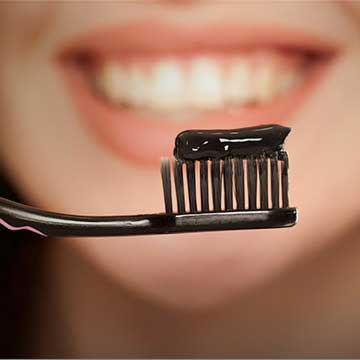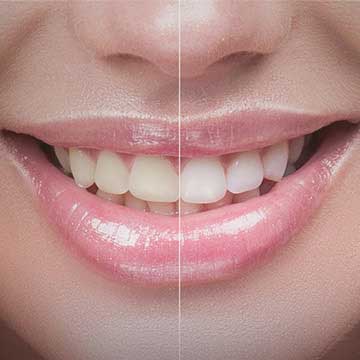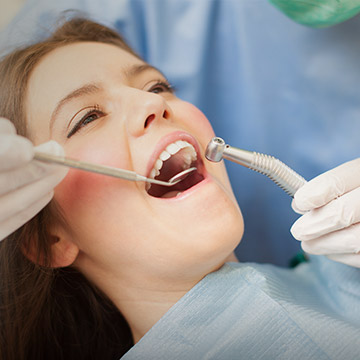
Our jaws are almost always in motion. Whether we are eating, talking, or simply sitting still, our jaws are always moving even if we aren’t completely aware of it. While this is normal, some conditions could develop, which can affect how you can move and use your jaw comfortably.
If you’re experiencing jaw pain, neck pain, or headaches, you may be experiencing the symptoms of temporomandibular joint (TMJ) disorder. The good news is there are treatment options available, including physiotherapy, nightguards, and Botox.
At Otara Dental in St. Albert, we offer Botox for TMJ disorder. Visit us by requesting an appointment to see how our dentists can help relieve your jaw pain.
What is TMJ Disorder?
Before we take a look at what TMJ disorder is, we have to understand what the temporomandibular joint is.
Temporomandibular joints (TMJ) are on each side of your head, just in front of your ears, and they are responsible for connecting your mandible (jawbone) to the rest of your skull. The TMJ is an incredibly complex joint and can rotate, slide, and move in practically any direction. Because of the TMJs incredible flexibility, it helps you chew, talk, yawn, and even swallow.
However, if you’re starting to experience pain or discomfort in the area where you TMJ is, you may be developing symptoms of TMJ disorder.
Causes of TMJ Disorder
There are multiple reasons as to why you may be developing TMJ disorder. TMJ disorders can stem from joint diseases (e.g. arthritis), jaw injuries and most commonly tooth clenching and grinding.
Tooth clenching and grinding, also referred to as bruxism, causes TMJ disorders in several ways. The excess tooth contact results in abnormal tension in the muscles that attach to the jaw and the jaw joint. The muscles go into spasm, causing soreness directly in that muscle or a variety of headache types.
The muscles also attach directly to the jaw joint itself and cause a pull on the capsule and the disk of cartilage inside the joint. This can result in pain within the joint and dislocation of the joint cartilage with symptoms of clicking, popping, jaw deflection and limited opening. Bruxism often increases in frequency and severity when people are under stress. It causes premature tooth wear and cracked teeth and fillings.
Often, bruxism happens during sleep when patients are not aware they are doing it. Patients should check to see if they are clenching during the daytime– your teeth should not be touching together unless food is being chewed.
Symptoms of TMJ Disorder
The severity of TMJ disorder can range from person to person, but a lot of patients may experience similar symptoms. Some of these symptoms can include:
- Pain in or around the ear, jaw joint, or even the muscles of the jaw, face, and temples
- Problems opening and closing your mouth while chewing, talking, yawning, or swallowing
- A clicking, grinding, popping, or even crunching sound as you chew
- Neck pain
- Headaches
- Jaw locking
- Teeth sensitivity without the presence of oral health disease
- Ringing in the ears
Note: many patients have abnormal and premature tooth wear without any other symptoms of tooth grinding. 70% of patients who grind their teeth are not aware of it, so check with your dentist to see if you have abnormal tooth wear for your age.
At first glance, some symptoms of TMJ disorder may look like indicators of different jaw or neck issues. Please, speak to your dentist or doctor to find the right treatment for your issues.

What Treatments Are Available for TMJ Disorder?
Depending on the seriousness of your symptoms, your dentist may recommend a variety of different treatment options to manage or mitigate symptoms of TMJ disorder. Some of these treatments can include:
Changing to a Soft Diet
Your doctor may also recommend changing your diet to include more soft foods such as pasta, bananas, soups, and smoothies. These will help lessen the amount of stress your jaw generates when chewing solid foods like apples, meats, and nuts.
Pain Medication
Many patients often use pain medications or non-steroidal anti-inflammatory drugs to help manage their symptoms. However, using pain medications are only considered to be a temporary relief for TMJ disorder symptoms and don’t address the root cause.
Physiotherapy & Massages
Your doctor may recommend a series of massage appointments or physiotherapy sessions to relax tense jaw muscles and improve range of motion in your jaw. The benefit of this method is that the massages are non-invasive while still being personalized and holistic.
These could even help you manage the emotional symptoms that may be related to TMJ disorder, including stress and depression.
Nightguards
Nightguards are a specialty mouthguard designed to help with TMJ disorder and bruxism. Unlike a stock mouthguard from a pharmacy or sports store, nightguards are customized to fit your mouth.
Soft, store-bought nightguards have been shown to actually increase the amount of grinding that patients do. They are not adjustable and can even worsen TMJ symptoms. A firm custom-made nightguard is more comfortable, durable and adjustable.
Your dentist will carefully design and meticulously adjust the nightguard to achieve a specific bite pattern that has proven to relax tight jaw muscles and decrease the bite pressure placed on the jaw joints. With a custom nightguard, there is a much higher chance you’ll wake up rested and in less discomfort after an undisturbed sleep!
Many insurance plans cover a portion of the cost for custom made night guards.
Botox
Botox treatment is another treatment that can help provide relief from TMJ disorder. Botox is injected into the major clenching muscles of jaws which then relaxes and eases the tension in those muscles for several months. This can help reduce the severity and frequency of symptoms like jaw pain and headaches. Botox treatment is an in-office treatment, so please talk to your dentist to see if it’s right for you!
Visit Otara Dental for TMJ Treatment in St. Albert
Relieve the pain associated with TMJ disorder today and request an appointment at Otara Dental. We’ll help find a treatment option right for you.








